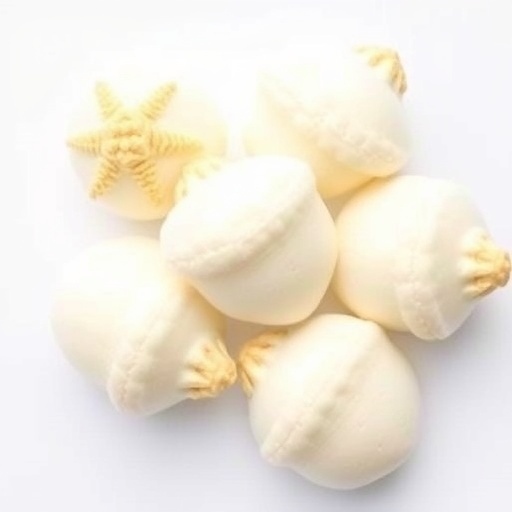In the realm of microbiology and food safety, researchers continue to explore innovative approaches to combat pathogenic fungi that threaten crop yields and food safety. A recent study, spearheaded by Moure et al., delves into the effects of kefir yeasts on the notorious fungal pathogen Fusarium graminearum, which is known for causing significant agricultural damage and producing harmful mycotoxins, particularly deoxynivalenol (DON). This groundbreaking research is critical as it opens new avenues for biocontrol methods that could mitigate the adverse effects of these fungi on food supplies.
Fusarium graminearum is a filamentous fungus that predominantly affects cereal crops like wheat, barley, and maize. The prevalence of this fungus often results in devastating losses for farmers and can lead to serious health issues in humans and livestock due to the consumption of contaminated grains. The primary toxin produced by F. graminearum is deoxynivalenol, which has been implicated in a range of toxicological effects, including vomiting, diarrhea, and immune system impairment, affecting both human health and livestock productivity. As such, understanding the mechanisms that can inhibit F. graminearum’s growth is of paramount importance.
In their research, Moure et al. examine the antifungal properties of kefir yeasts, which are a diverse group of microorganisms found in the fermented milk beverage known as kefir. Kefir has long been celebrated for its probiotic benefits, but the authors take a novel approach by assessing the potential of these yeasts not just for human health, but also for agricultural purposes. Their study sets out to evaluate the efficacy of various strains of kefir yeasts in inhibiting the growth of F. graminearum in laboratory conditions.
.adsslot_vSGKW2kT5Y{ width:728px !important; height:90px !important; }
@media (max-width:1199px) { .adsslot_vSGKW2kT5Y{ width:468px !important; height:60px !important; } }
@media (max-width:767px) { .adsslot_vSGKW2kT5Y{ width:320px !important; height:50px !important; } }
ADVERTISEMENT
The methodology employed in this research is quite meticulous. The authors isolated different strains of kefir yeasts and then assessed their antifungal activity through a series of laboratory experiments. Parameters like growth inhibition were carefully measured alongside the production of deoxynivalenol. By utilizing a controlled setup, the researchers were able to create a reliable and reproducible experiment that would yield significant insights into the antifungal capacities of these yeasts.
One of the key findings of the study is the identification of specific strains of kefir yeasts that exhibit potent antifungal activity against F. graminearum. These strains demonstrated an impressive ability to slow down fungal growth while simultaneously reducing the production of deoxynivalenol. This dual action not only makes them ideal candidates for further research but also lays the groundwork for potential applications in agricultural practices. Farmers could potentially incorporate these beneficial yeasts into their crop management strategies, offering a natural alternative to chemical fungicides.
The implications of this research extend beyond agriculture. As the world grapples with the challenges posed by food safety and security, the utilization of biological agents such as kefir yeasts could herald a new age of sustainable farming practices. By reducing our reliance on synthetic chemicals, we can pave the way for more eco-friendly approaches that not only protect crops but also preserve the environment. The study advocates for continued research into the applications of these natural antifungal agents, emphasizing their potential role in a holistic approach to integrated pest management.
Moreover, kefir yeasts could also play a role in the food industry beyond just being an antifungal agent. With the growing consumer demand for natural and organic food products, incorporating these microbes into food preservation techniques could enhance the safety and shelf-life of various foods. This research highlights a multifaceted approach where the benefits of kefir yeasts could extend from the field to the dining table, creating a more robust and appealing food system.
The researchers are not only optimistic about the findings but also stress the importance of understanding the biochemical mechanisms through which kefir yeasts exert their effects. Future studies are suggested to delve deeper into the molecular interactions between these yeasts and F. graminearum to gain insights into how they can be optimized for best outcomes in real-world applications. Understanding these interactions could unravel new pathways for genetic modifications or breeding programs aimed at enhancing the resilience of crops.
Furthermore, the study acknowledges the need for comprehensive field trials to assess the effectiveness of kefir yeasts in real agricultural settings. While laboratory results are promising, they do not always translate seamlessly to field conditions where environmental variables play a significant role. Conducting these trials would be the next crucial step in validating the research findings and determining the feasibility of integrating kefir yeasts into practical agricultural practices.
In conclusion, the research conducted by Moure et al. presents a compelling case for investigating the application of kefir yeasts in controlling Fusarium graminearum and reducing the production of deoxynivalenol. This innovative approach offers significant promise in promoting healthier crops and fostering sustainable agricultural practices. As we continue to face challenges related to food security and safety in an ever-changing climate, studies like this inspire a proactive stance toward utilizing natural solutions in our food systems.
By adopting such measures, we can not only counteract harmful pathogens but also protect our health and the environment, steering global agriculture towards a more sustainable future. The implications of their findings could resonate throughout the agricultural sector, delivering more resilient crops and safer food products to consumers worldwide.
Subject of Research: The impact of kefir yeasts on the growth of Fusarium graminearum and the production of deoxynivalenol.
Article Title: Impact of kefir yeasts on Fusarium graminearum growth and production of deoxynivalenol.
Article References:
Moure, C., Albuquerque, D.R., Peláez, A.L. et al. Impact of kefir yeasts on Fusarium graminearum growth and production of deoxynivalenol.
Int Microbiol (2025). https://doi.org/10.1007/s10123-025-00661-8
Image Credits: AI Generated
DOI: https://doi.org/10.1007/s10123-025-00661-8
Keywords: Kefir yeasts, Fusarium graminearum, deoxynivalenol, food safety, sustainable agriculture, biocontrol methods, probiotics.
Tags: agricultural microbiology researchcereal crop healthdeoxynivalenol production inhibitionfood safety microbiologyFusarium graminearum biocontrolhuman health and mycotoxinsinnovative biocontrol methodskefir yeasts antifungal propertieslivestock productivity and food safetymycotoxin reduction strategiespathogenic fungi crop protectionyeast applications in agriculture





